Strength in Numbers
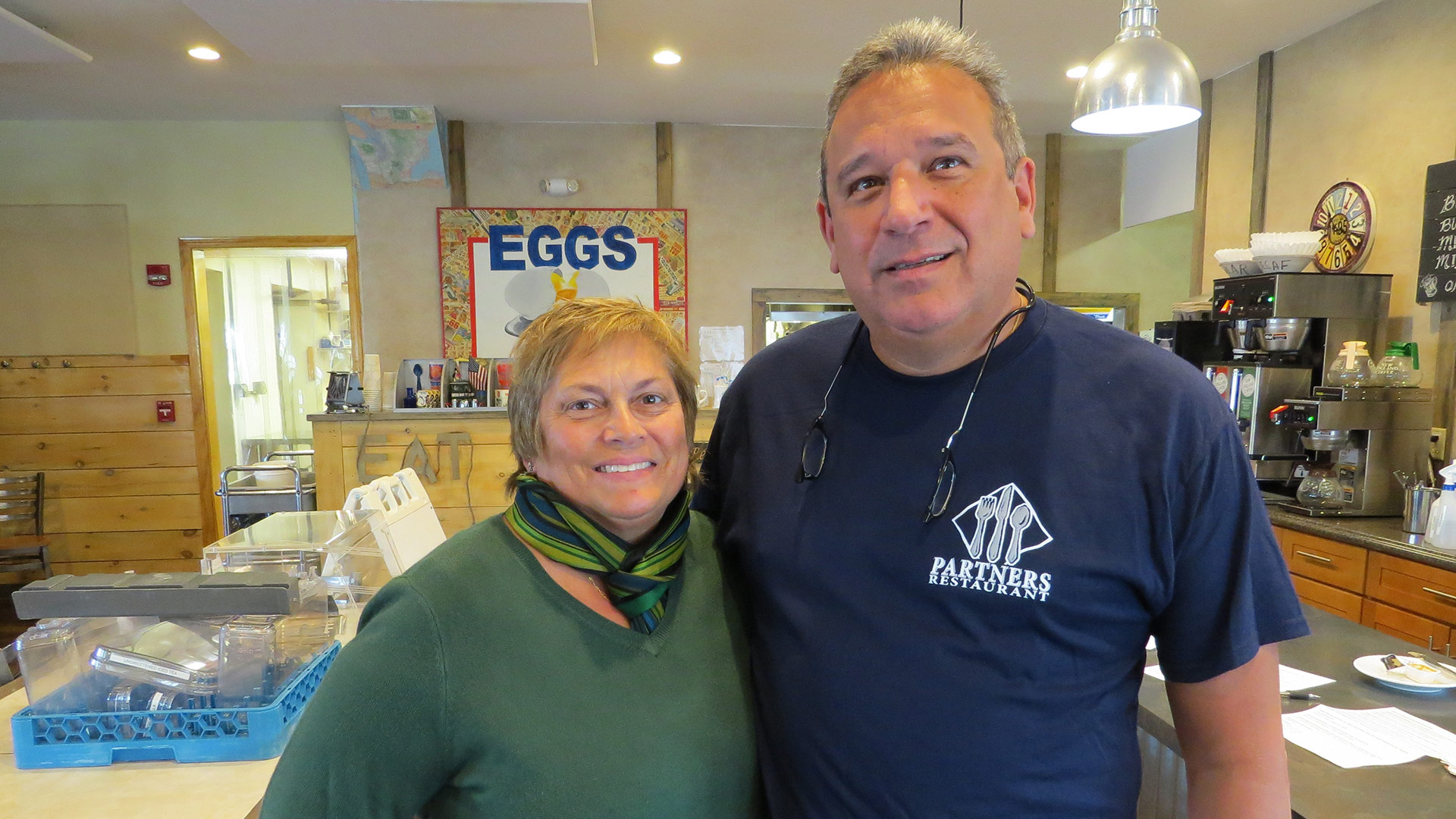
Sue Tansey, co-owner, with her husband, Mark, of Partners in Agawam and the Cup in West Springfield
Bill Collins says he was bought to tears by the edict from the governor that banned people from dining inside restaurants across the state — and he certainly wasn’t the only one within this sector to have such a moment.
“There is nothing about this that’s not going hurt — I mean really hurt,” said Collins, owner of Center Square Grill in East Longmeadow and HighBrow in Northampton, referring to everything from the ban on indoor seating to the inability of serve alcohol, a huge profit center for most all restaurants. “This is heartbreaking, but I usually don’t cry in my restaurant.”
But not long after reacting emotionally, Collins summoned some internal strength and determination to try to do what every business in this region — and, indeed, across the country — is trying to do: get to the proverbial ‘other side’ of the COVID-19 pandemic.
It won’t be easy, but Collins and other restaurateurs are responding with equal doses of grit and imagination, with initiatives ranging from a gift-card sales effort called Strength in Numbers (more on that in a minute) to Collins’ plans to essentially bring the restaurant experience into one’s home at a time when they can’t actually go to a restaurant.
“We’re putting together packages now for parties of two to 10 — $75 per person that would include a chef, a server, the food, and have us come over,” he explained. “We’ll try to create some of that restaurant feel.”
In many ways, the restaurant business, and the larger hospitality sector, is the tip of the spear with regard to the COVID-19 pandemic. The results are immediate, and so are the emotions, the responses — from layoffs and closures of some establishments to creation of new revenue generators — and optimism, which is hard to come by in these unprecedented times, but it’s still there.
The immediate response taken by most restaurants was to adjust staffing as necessary, lock up the alcohol, clean and sanitize their businesses, and then figure out what to do next, which in most cases means finding ways to offer takeout and curbside service. For many, the painful layoffs have begun, and the cuts are deep.
“We’re putting together packages now for parties of two to 10 — $75 per person that would include a chef, a server, the food, and have us come over. We’ll try to create some of that restaurant feel.”
“The word ‘layoffs’ was very moving for me — in the 55 years we’re been in business, we’ve never had to deploy that terminology or even exercise the notion of laying off our most valuable asset — our employees,” said Andy Yee, a principal with the Bean Group, which operates a number of restaurants across the area, including the Student Prince in Springfield and Johnny’s Tavern in South Hadley, noting that the company had to let more than 350 employees go. “It was very painful for my family and I to go ahead and lay off the majority of our workforce because of this horrific turn of events. Nonetheless, when there’s no revenue coming in, there’s no other choice but to exercise that dreaded word.”

Sue Tansey, co-owner, with her husband, Mark, of Partners in Agawam and the Cup in West Springfield, said the company, which focuses on breakfast, lunch, and catering, is seeing all aspects of its business impacted, with the catering all but wiped out. The Cup has been closed, while Partners will carry on with carry-out, curbside delivery, and online ordering.
“We’re trying to utilize as few employees as possible,” she said, adding that, nonetheless, the company is trying to preserve as many jobs as it can while also provide services to a public that is often challenged to cook.
With this is mind, the company will expand its offerings to what Tansey calls “family meals” — takeout offerings that include soups, chicken parm, turkey, and, for St. Patrick’s Day, corned beef and cabbage — and also extend its hours from 7 a.m. to 5 p.m. (previously, it was open 7 to 2).
Collins, who has closed HighBrow, said he’s trying to find ways to keep as many of his employees at Center Square Grill (95 of them by his estimate) working, even if it’s part-time.
“We’re going to take the opportunity over the next three weeks to do some deferred maintenance, cleaning, and painting, and we’re going to offer that out to people,” he explained. “If the response is more than the workload, we’ll at least give people part-time shifts. My goal is to support all 95 people, in one shape or form, through this.”
Local and state governments are supporting local restaurateurs in other ways. For example, Massachusetts will postpone the collection of taxes to provide relief to the state’s restaurant and hospitality sectors by delaying the collection of sales tax, meals tax, and room-occupancy taxes, while also waiving all penalties and interest. Meanwhile, the city of Springfield has introduced an initiative called Prime the Pump, offering $222,679 in grants, up to a maximum of $15,000 for qualified restaurants.
“While the small-business support being advanced by the federal and state government is beneficial, it is clear to me that more creative and flexible financial lifelines need to be established for the small businesses, especially restaurants which have disproportionately felt the economic impact resulting from the coronavirus mitigation measures designed to protect us all,” said Tim Sheehan, the city’s chief Development officer.
Still, restaurants are finding ways to stay nimble in response to the crisis. While most had some form of takeout and delivery services, they now find themselves ramping up those efforts, many with curbside service that will enable customers to pick up dinner without going into the restaurant or even getting out of the car.
Overall, things got off to a somewhat slow start with such initiatives, said Yee, who theorized that this results from people having crammed freezers and refrigerators as a result of panic buying, and a desire to eat what they have.
He predicts — and really hopes — that, over time, people will want to get back in the habit of eating out — even if it’s still in their own home.
“This is old terminology, but people are loaded for bear — their refrigerators are chock full,” said Yee. “That first night, it was pretty much crickets when it came to people thinking about getting takeout. I think that’s going to change in time; people will say, ‘I’m tired of sitting home eating spaghetti and meatballs — I want a pizza,’ or ‘I want sushi.’”
Peter Rosskothen, co-owner of the Delaney House in Holyoke and several Delaney’s Market facilities where consumers can buy prepared meals, said that, after careful consideration, he decided the Delaney House was not well-suited to takeout and delivery, so efforts are being focused on the markets.
And at those locations, business has been “steady,” he said, echoing those thoughts about people eating what’s in their own freezers at the moment.
“We’re not going crazy, but we’re not slow, either,” he explained, adding that those facilities also do delivery, and if anything, he’s worried about being able to keep up if demand for that service increases dramatically. If it does, that will be a good problem to have at a time when people in this sector could use one.
But despite their lives and businesses being turned upside down, restaurateurs, at least the ones we spoke with, are trying to remain positive and look for opportunities to succeed both now and when they get to that other side.
“I think we’re all in the same boat; we’re just getting hit first,” Rosskothen said, referring to the broad hospitality sector. “Only time will tell. The best we can do is utilize our smartness and fight through this as much as we can. We’re a very resilient country; we’ll come out of this, and something good will come out of this — I’m convinced of that. We might be struggling a little bit, but something good will come out of this.”
Collins also chose to find a bright side to all this.
“This is opportunity … everybody has to stay positive and say, ‘how am I going to come out of this?’” he told BusinessWest. “Maybe it’s with a new and exciting menu and a cleaner restaurant that’s in better shape than it’s ever been. People can give careful thought to promotion and how to operate on the other side, and also charge their batteries. A lot of people burn out in the restaurant business — so take a break, collect your thoughts, and kick some ass on the other side.”
Meanwhile, many are already seeing some good in the form of the support they’re receiving from loyal patrons who want to help see them through these incredibly difficult times.
“We have a loyal following, and there are people out there supporting our initiatives,” said Yee. “I received a couple of texts last night … people saying, ‘I’m here, I got some takeout, I’m here to support,’ and they send along a picture of them with their takeout bag.”
And though they’re competitors, many of these restaurant owners are also collaborating, especially with the Strength in Numbers initiative.
It will run for three days later this month — March 28-30 — and incentivizes consumers to help restaurant owners by including a $20 gift voucher with each $100 gift card purchased.
The list of participating restaurants continues to grow, and includes the Fort and Student Prince, Johnny’s Tavern, Johnny’s Tap Room, Johnny’s Roadside Diner, the Halfway House, Union Kitchen, McLadden’s, Johnny’s Bar and Grille, IYA Sushi, the Boathouse, Wurst Haus, Copper House Tavern, the Delaney House, Delaney’s Market, the Mick, Center Square Grill, HighBrow, Spoleto, Mama Iguana’s, bNapoli, Lattitude, the Meeting House, the Federal, and others.




 On one hand, Pam Victor would seem like the perfect person to turn to for advice on how to stay positive and maintain morale during this time of extreme crisis — when everyone’s life and work has been seemingly turned on its ear and nothing seems safe anymore.
On one hand, Pam Victor would seem like the perfect person to turn to for advice on how to stay positive and maintain morale during this time of extreme crisis — when everyone’s life and work has been seemingly turned on its ear and nothing seems safe anymore.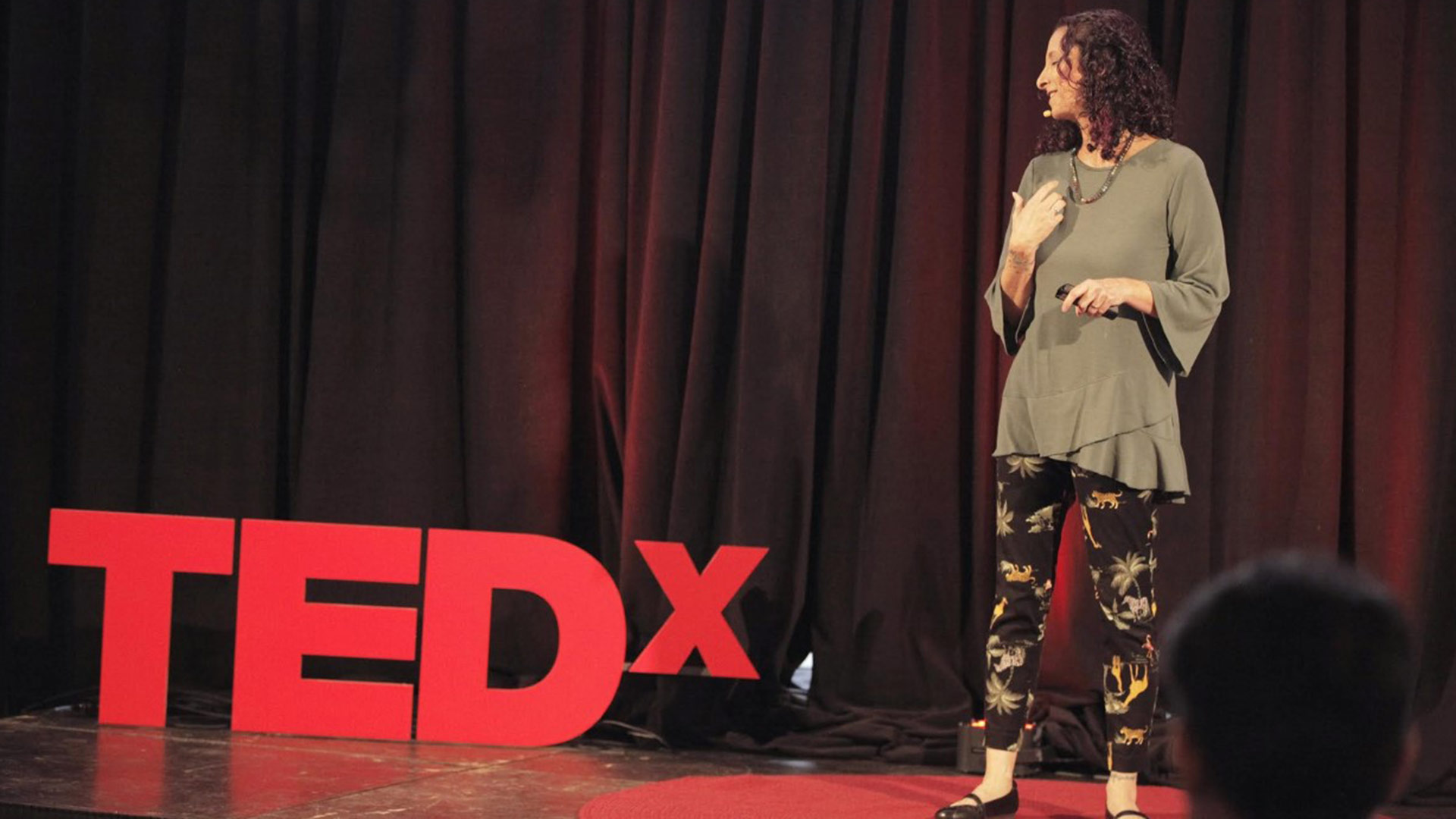





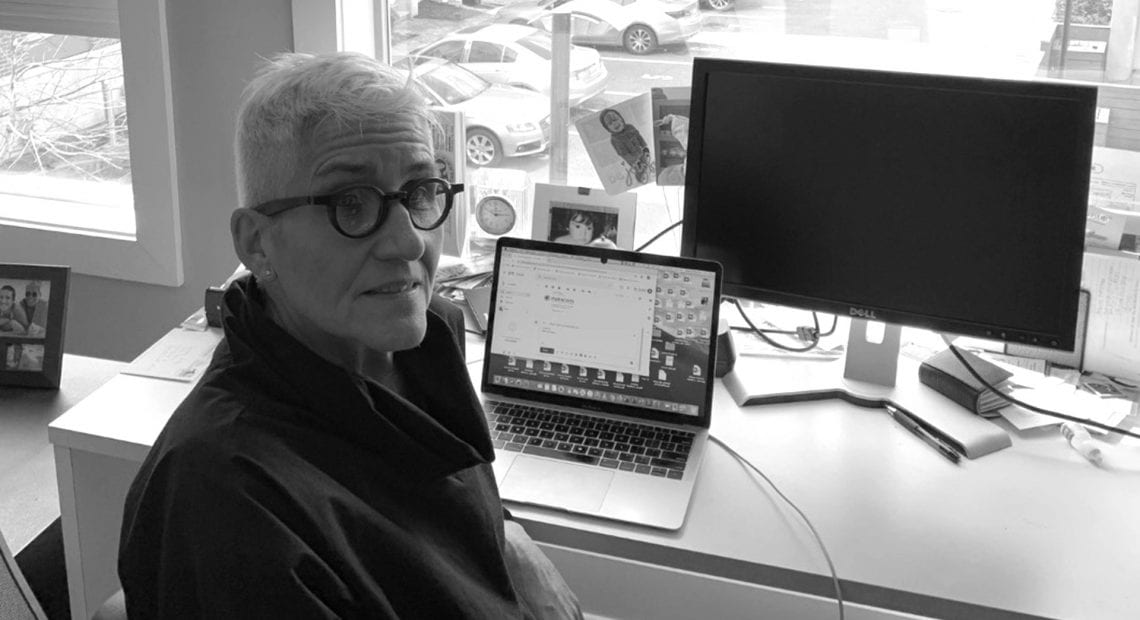
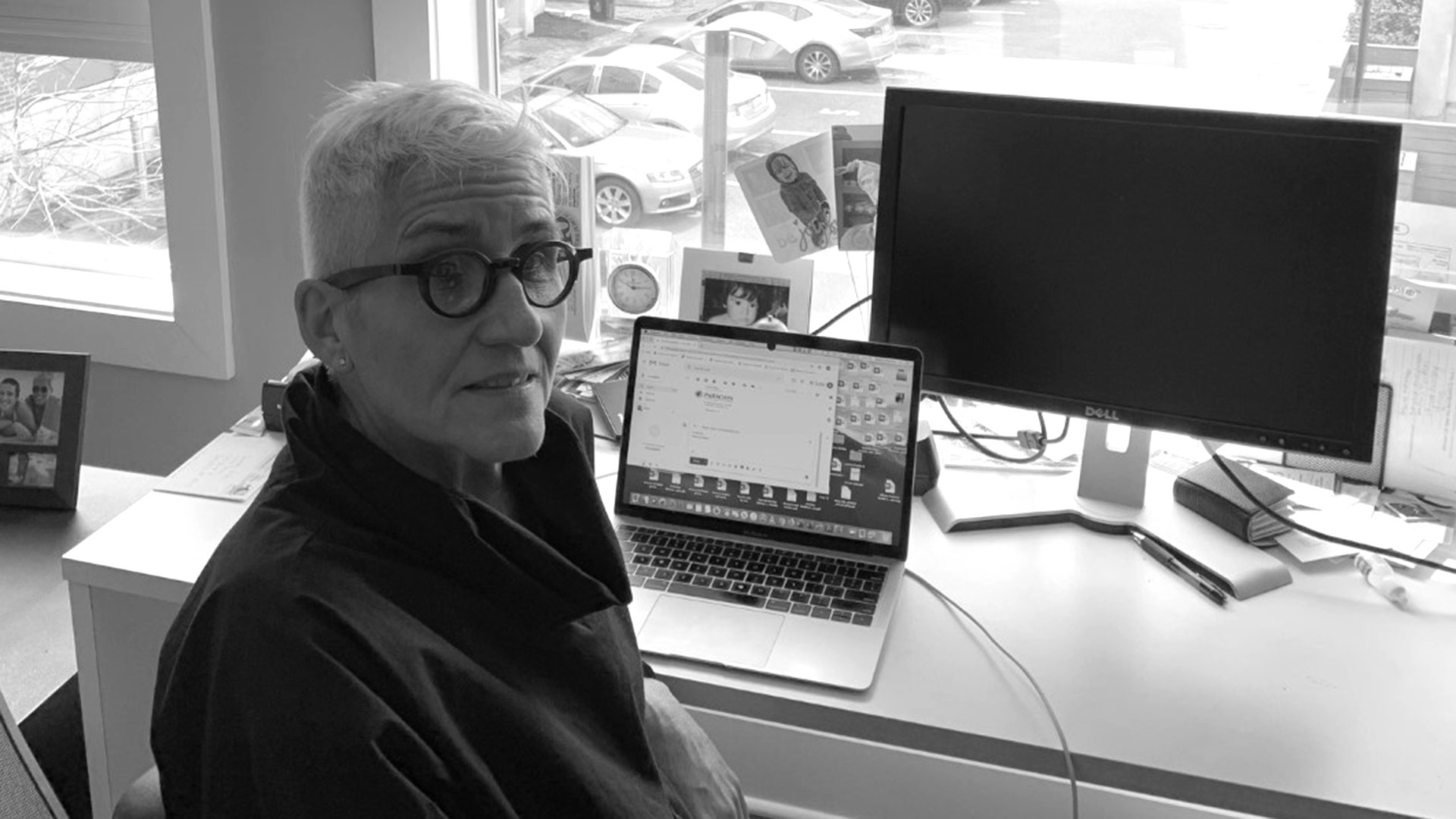



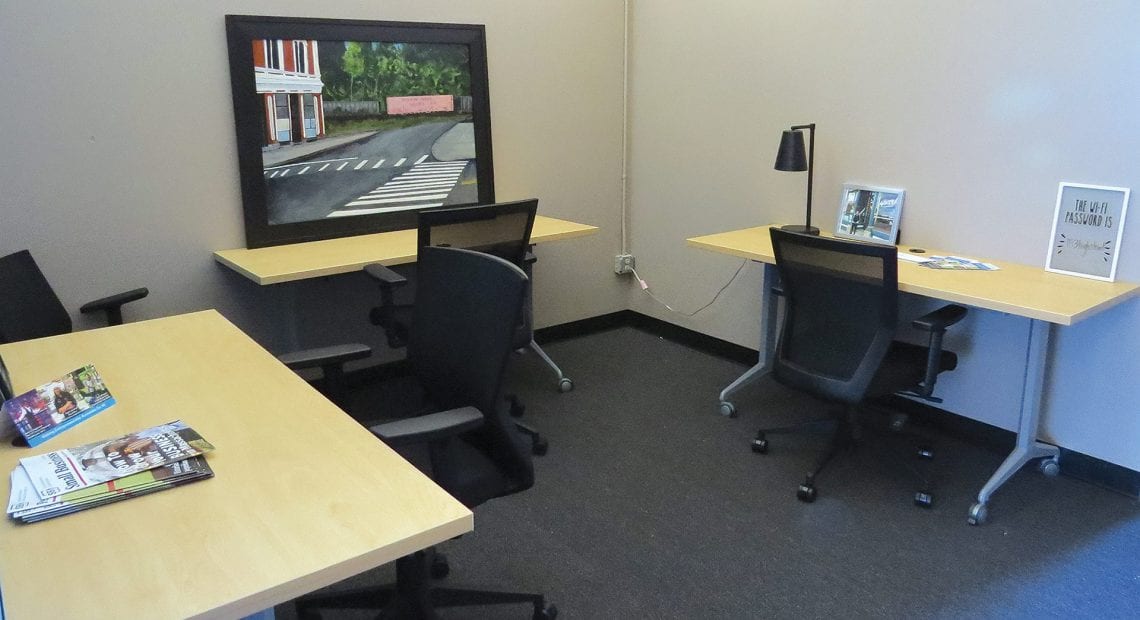

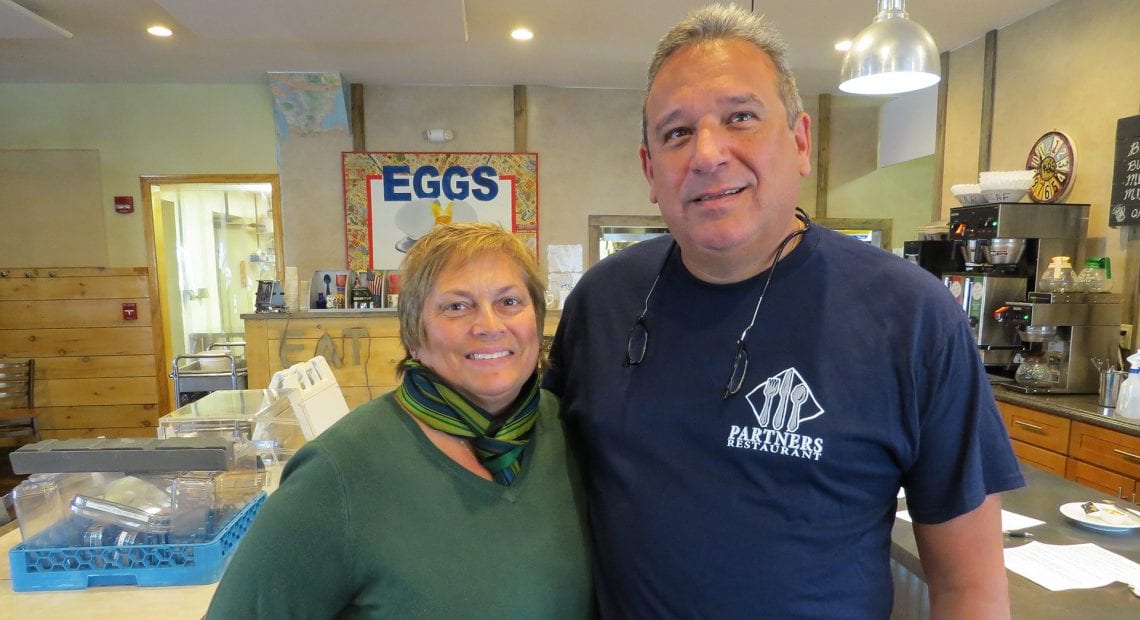


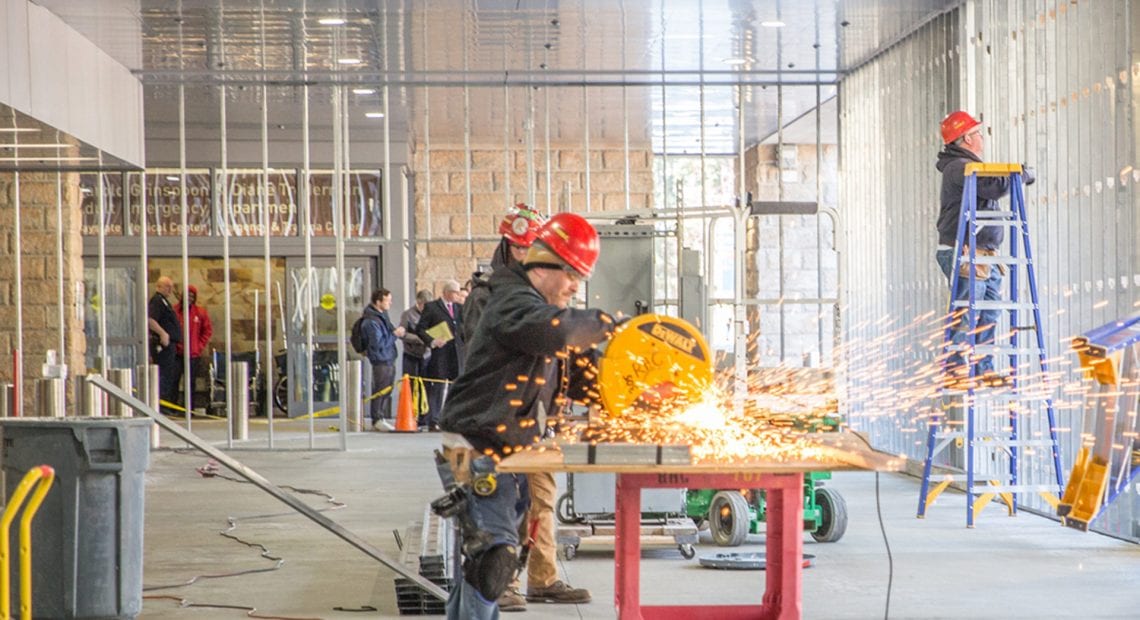
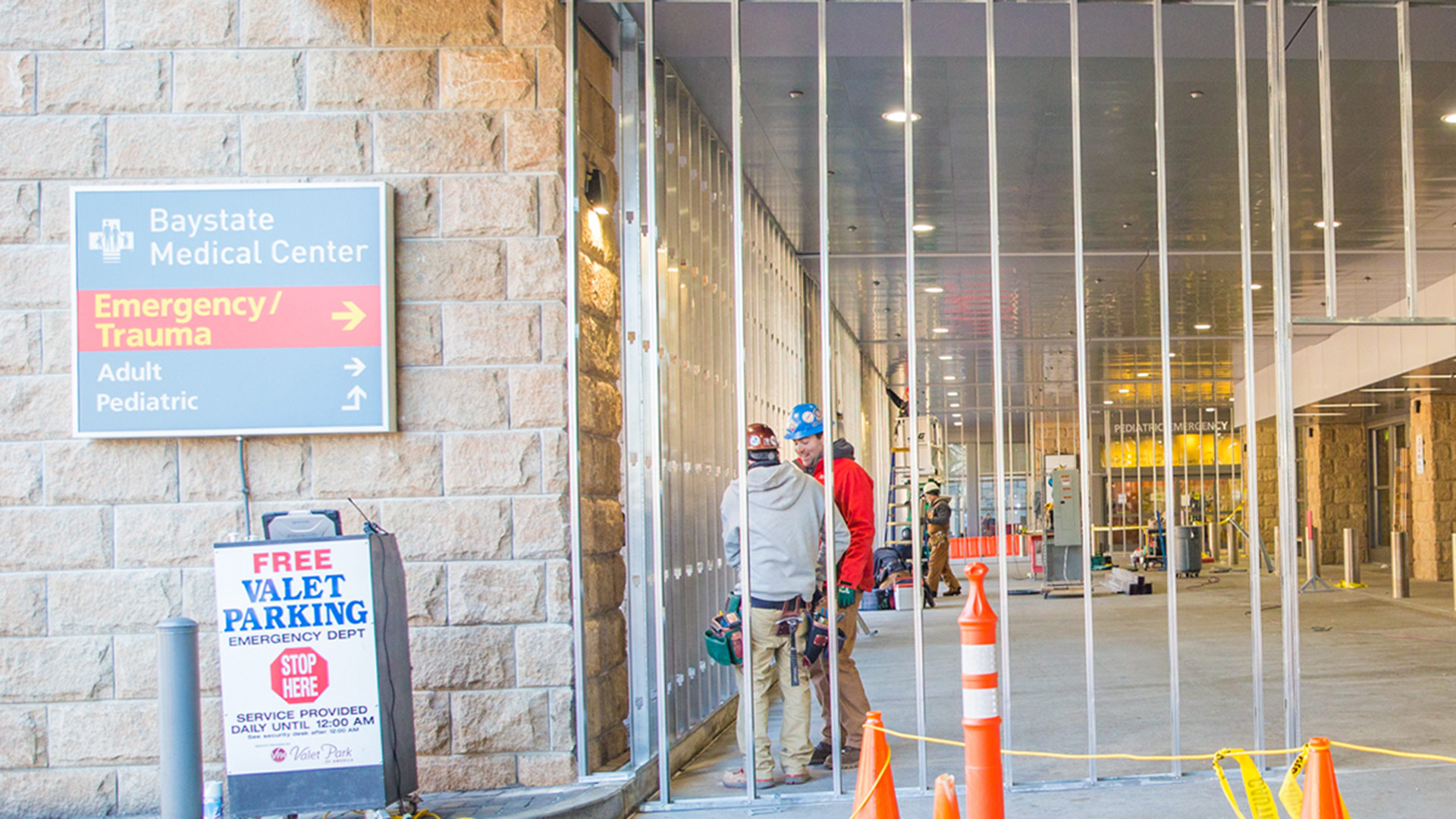 The Emergency Department was rather quiet at Baystate Medical Center on Monday morning.
The Emergency Department was rather quiet at Baystate Medical Center on Monday morning.


